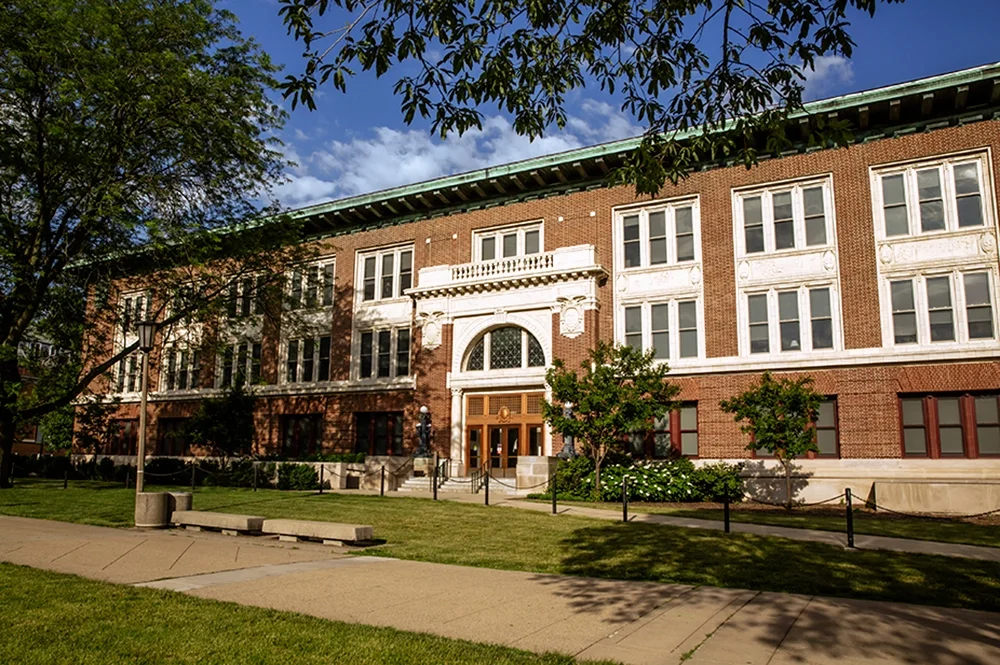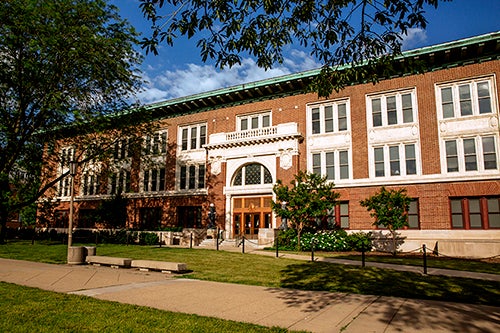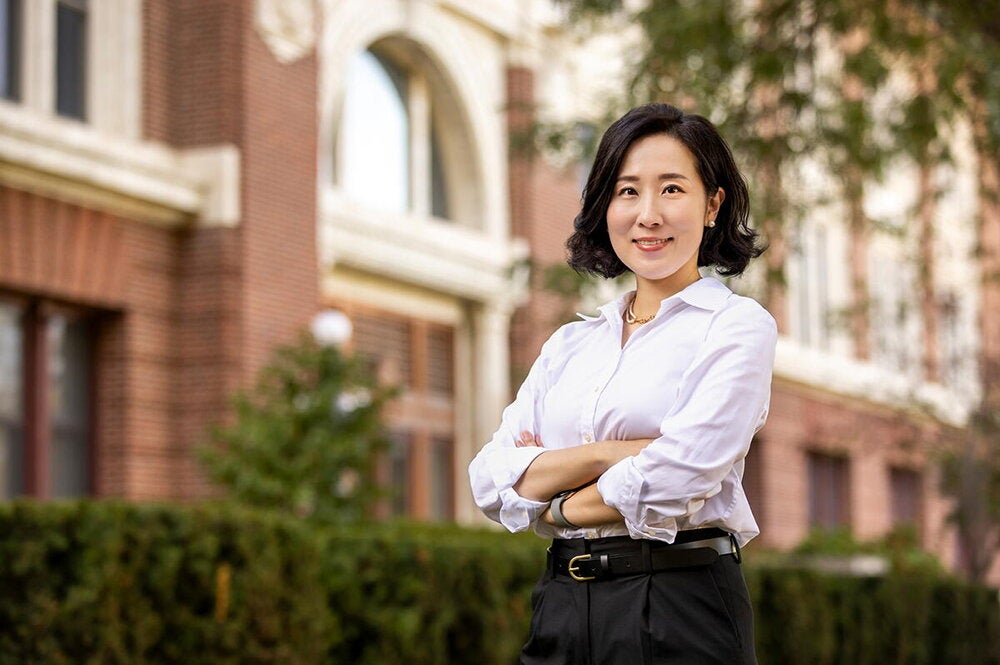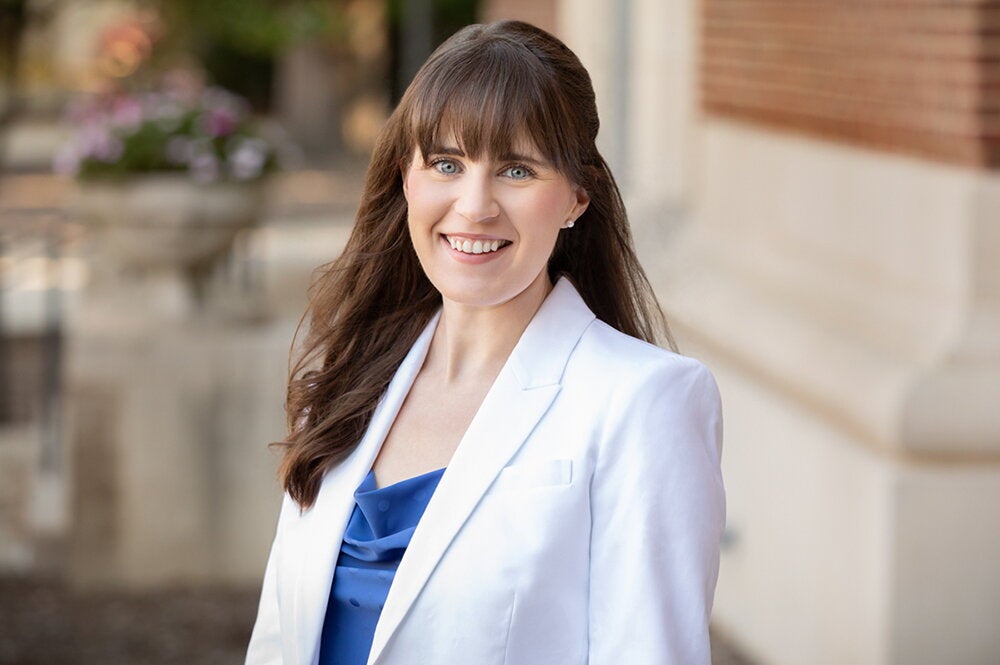

Several professors have recently received named scholar positions for their contributions to research, education, and the academic mission of the College of LAS.
The named positions include an Aaron and Laurel Clark Scholar (for faculty members in humanities), an LAS Distinguished Professorial Scholar, Lincoln Excellence for Assistant Professors (LEAP) Scholars, a Lynn Martin Professorial Scholar (for exceptional women teachers), and Norman P. Jones Professorial Scholars (for exceptional mid-career tenured faculty members).
“We’re extremely proud to recognize these exemplary faculty members,” said Venetria K. Patton, the Harry E. Preble Dean of the College of LAS. “Their creativity, hard work, and insights make them excellent teachers and researchers who deepen our understanding of the world around us.”
The recipients will receive financial support for their work. The awardees are as follows:
Aaron and Laurel Clark Scholar
Melissa Littlefield (English). Littlefield researches literature and science, science and technology studies, critical neuroscience, forensic science, science fiction, and disciplinarity. She is author of, most recently, “Instrumental Intimacy: EEG Wearables and Neuroscientific Control,” as well as “The Lying Brain: Lie Detection in Science and Science Fiction.” She is coauthor of “The Neuroscientific Turn: Transdisciplinarity in the Age of the Brain.”
LAS Distinguished Professorial Scholar
Travis Dixon (communication). Dixon is a media effects scholar who specializes in investigating the prevalence of stereotypes in the mass media and the impact of stereotypical imagery on audience members. In 2019, he became the first African American scholar inducted as a fellow of the International Communication Association, one of the highest honors in the communication discipline. His more recent investigations scrutinize the content and effects of stereotypes and counter-stereotypes in major news events, social media, and musical contexts.
Lincoln Excellence for Assistant Professors (LEAP) Scholars
Eva Fischer (evolution, ecology, and behavior). Fischer’s research explores underlying mechanisms to understand how behaviors are generated, maintained, and modified by evolution. Fischer and her lab use integrative approaches to address these questions across hierarchical levels of biological organization and timescales. They combine lab and field studies to understand variation and adaptation in ecologically relevant behaviors. Currently, they work primarily with charismatic neotropical poison frogs.
Nic Flores (Latina/Latino studies). Flores specializes in public and sexual health, HIV/AIDS prevention, ethnography, comparative ethnic and racial studies, and gender and sexuality studies with additional interests in queer of color critique, disability studies, and feminist science and technology studies. He co-hosts the podcast Learning on the Job as well as the annual Writing in Depth: An Academic Writing Retreat hosted at Hope Springs Institute in Ohio.
Deanna Hence (atmospheric sciences). Hence’s research interests include tropical meteorology, tropical cyclones, orographic precipitation, remote sensing, mesoscale convective systems, radar meteorology, satellite meteorology, and hazardous weather. She is also passionate about science communication and policy as well as expanding scientific literacy. She hopes to bridge the gap between science and other human interests to help science be more relevant and useful to the greater good.
Brett Kaufman (classics). Kaufman is an archaeologist specializing in the Mediterranean and Near East with a focus on Phoenicians and Carthage, archaeometallurgy and ancient engineering and design, the formation and maintenance of sociopolitical hierarchy and the origins of popular government, and reconstructing long term ecological management strategies of ancient and historical societies. He has directed or supervised archaeological excavations in Tunisia, China, Italy, Israel, and New York.
Xin Li (cell and developmental biology). Li researches development, genetics, genomics, neurobiology, and regulation of gene expression. Li and her lab investigate how the sequential expression of transcription factors in neuroblasts generates neural diversity. Li’s research sheds light on the neurogenesis of a complex adult neural structure, as well as on the general mechanism of temporal patterning of neural progenitors.
Krystal Smalls (anthropology and linguistics). Smalls conducts ethnographic research in different locations of Black diaspora (mostly digital or urban). Her work specifically concerns the discourses and practices that constitute Blackness, anti-Blackness, and anti-anti-Blackness. One of her recent projects considers how uses of "emphatically Black" and "intentionallly Black" language and discourse in digital space function as public refusals of anti-Black "raciolinguistic ideologies" (Rosa & Flores 2017) and, semiotically, may help reracialize public spaces and reconfigure racialized signs.
Lynn Martin Professorial Scholar
Terri Barnes (gender and women’s studies and history). Barnes’ current main research project focuses on a South African philosophy professor who was also a state censor, prosecution witness, and perhaps a spy in the apartheid era. There is not enough historiography of South Africa in this period to understand how people were educated to accept injustice. Barnes is also researching issues of solidarity between activists in the U.S., South Africa, and Zimbabwe, and she continues to study high school history textbooks and teaching trends in Zimbabwe.
Norman P. Jones Professorial Scholars
Rachel Smith-Bolton (cell and developmental biology). Smith-Bolton researches trauma, bleeding, and tissue regeneration. The process of regeneration is not well understood. Smith-Bolton’s lab aims to answer these questions using the regeneration of a simple epithelial tissue, the wing imaginal disc, in the model organism Drosophila melanogaster. They use genetic tools to induce tissue damage and regeneration in a way that enables high-throughput experiments, forward genetic screens, and genomic approaches to identify the genes and mechanisms that regulate each step in regeneration.
Charee Thompson (communication). Thompson studies health communication in personal and patient-provider relationships. Her research illuminates two perspectives: individuals’ understandings of their own health and individuals’ understandings of others’ health. She examines how people in personal relationships navigate illness uncertainty and uncertain illnesses, primarily those conditions such as mental illness and chronic pain that are not visible and not well understood. Another research area involves improving health care through educational trainings.


